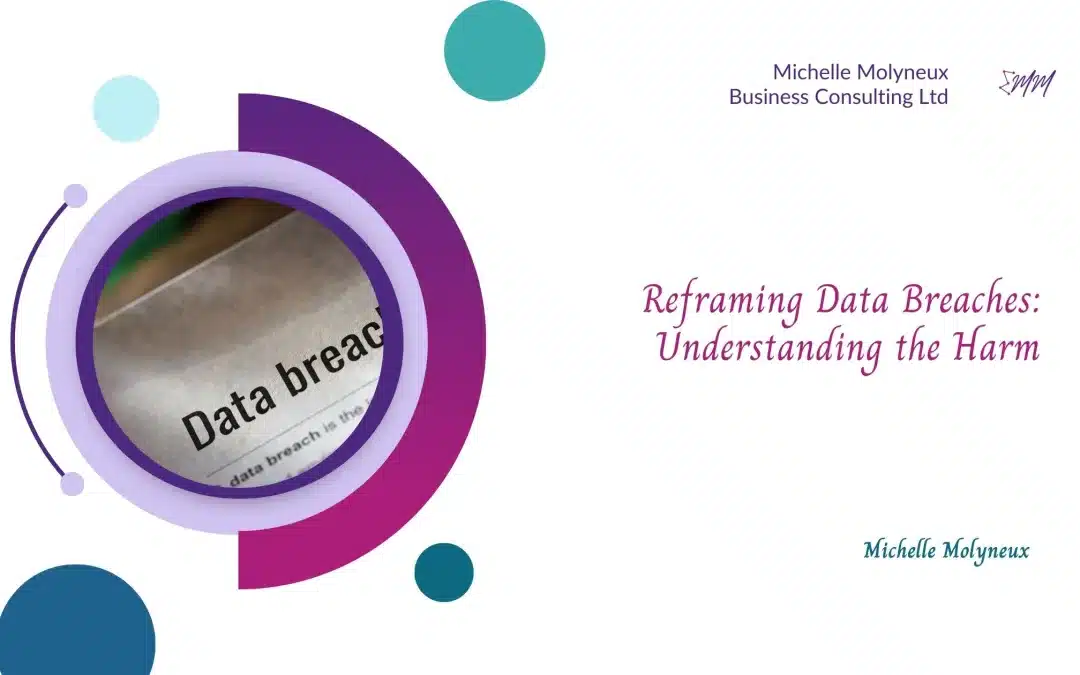When organisations hear “data breach,” their immediate concerns often revolve around legal compliance, regulatory fines, and reputational damage. But what about the people impacted? At the Data Protection Practitioners’ Conference 2024 (DPPC24), the “What’s the Harm?” reframed how we think about data breaches, urging organisations to recognise the human impact and adopt more compassionate, trauma-informed responses.
This blog explores the key insights from DPPC24 on data breaches, focusing on their social and psychological consequences and practical steps for organisations to handle breaches better.
The Human Impact of Data Breaches
At DPPC24, real-life examples illustrated how data breaches can profoundly disrupt lives. Imagine having your home address exposed, forcing you to move for safety, or facing stigma because sensitive personal information was leaked. These examples show that the consequences of breaches go far beyond technical errors—they often lead to trauma, fear, and loss of trust in systems.
The session also highlighted the “scarcity mindset” triggered by breaches. Individuals may avoid using vital services (like healthcare) for fear of further exposure. Organisations, in turn, may downplay the breach’s impact to avoid “opening the floodgates” to compensation claims. This vicious cycle undermines trust and accountability.
Key Lessons on Responding to Breaches
DPPC24 emphasised that how an organisation responds to a data breach can significantly influence the harm caused. Here are the key takeaways:
1. Acknowledge the Harm
Organisations often treat breaches as administrative errors, but it can feel deeply personal for affected individuals. Acknowledging the harm shows empathy and helps rebuild trust.
2. Adopt Trauma-Informed Practices
Trauma-informed responses prioritise the emotional and psychological well-being of those affected. This might involve clear communication, avoiding blame, and offering support services.
3. Listen to Affected Individuals
Ask people what they need and how you can support them. Some may want reassurance that their data is secure; others may need compensation or counselling.
4. Take Ownership
Avoid shifting blame or minimising the breach. Be transparent about what happened, what’s being done to address it, and how future incidents will be prevented.
5. Support Staff Involved
Breaches can also impact the employees responsible for the mistake. Compassionate internal handling can prevent burnout and maintain morale.
Practical Steps for Organisations
The session offered actionable advice for improving breach management. Here’s how your organisation can respond better:
1. Build a Compassionate Breach Response Framework
Train staff on trauma-informed practices and integrate them into your incident response plans. This ensures that responses are not just procedural but also empathetic.
2. Document the Human Impact
Go beyond reporting technical details. Capture the experiences and needs of those affected, using this information to inform ongoing improvements.
3. Improve Communications
Ensure breach notifications are clear, timely, and supportive. Avoid legal jargon and focus on explaining the steps being taken to protect affected individuals.
4. Collaborate with Experts
Partner with mental health advisors or community advocates to provide tailored support.
5. Learn and Adapt
Every breach offers lessons. Conduct thorough post-incident reviews to refine your policies and practices, ensuring they align with both legal requirements and human needs.
Why a Human-Centred Approach Matters
At its core, data protection is about people. By adopting a human-centred approach to breach management, organisations can meet regulatory obligations, restore trust, demonstrate accountability, and strengthen relationships with stakeholders.
As one speaker at DPPC24 poignantly noted:
“When our personal data is exposed, we lose not just trust in systems, but faith in safety itself. You have the power to restore that trust through careful and compassionate data protection.”
Closing Thoughts
Data breaches are more than administrative headaches; they are deeply personal events for those affected. By reframing breaches as opportunities to learn, connect, and support, organisations can move beyond compliance and foster a culture of care and accountability.
Stay tuned for the next post in our DPPC24 series, where we’ll explore the risks and opportunities of artificial intelligence in data protection and how organisations can navigate them safely.
Further thoughts and information:
- the ICO’s DPPC24 event page for further resources
-
Preparing for the Inevitable – Cyber Security and Incident Response at DPPC24
-
Preparing for the Inevitable – Cyber Security and Incident Response at DPPC24
To keep up to date, sign up for our weekly databyte.
